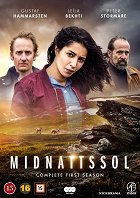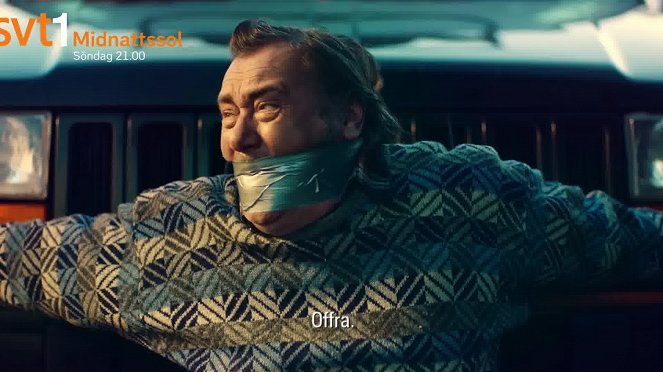Cinematography:
Erik SohlströmComposer:
Nathaniel MéchalyCast:
Leïla Bekhti, Gustaf Hammarsten, Albin Grenholm, Jakob Hultcrantz Hansson, Jessica Grabowsky, Richard Ulfsäter, Oscar Skagerberg, Jeremy Corallo (more)Episodes(8)
Plots(1)
Kahina Zadi (Leila Bekhti), a French police officer, travels to Kiruna, a small mining community in remote northern Sweden, to investigate a brutal murder of a French citizen. With the help of Anders Harnesk (Gustaf Hammarsten), a Swedish DNA and a member of the Sami, an ancient, mysterious indigenous tribe of Scandinavia, they are faced with new killings and the initial murder turns out to be the tip of the iceberg. Kahina and Anders come to realise that behind the killings is a ten-year-old secret conspiracy involving many of the town’s inhabitants. Kahina finds herself confronting a ruthless serial killer, always one step ahead, a macabre plan, and her own painful past. (StudioCanal UK)
(more)Reviews of this series by the user JFL (1)
Midnight Sun (2016)
It is interesting to read those comments here on FilmBooster thanks to which I finally understood what viewers of detective shows consider to be quality: refined visuals and “original murders”. Viewers of classic episodic detective shows like Colombo are amateur investigators who enjoyed trying to solve the crime together with the detective or even a step ahead of the detective. But then along came dramatic detective series in which the murder was no longer the pivotal event, but rather a McGuffin that aids the characters in dealing with their relationships and personal dramas. Where true screenwriting qualities are concerned, the Danish series The Killing still ranks highly in this category, followed closely by the Icelandic Trapped. The creative duo of Mårlind and Stein gained international renown with The Bridge, in which they did not in any way enrich the frequently utilised yet, due to the difficulty involved with it, rarely well-executed concept. Instead of realistic characters, they came up with extreme opposites, which they inserted into an overwrought case with a perfect Bond-esque murderer, for whom every detail of his exceedingly convoluted plan turns out well. Thanks, however, to the superbly calibrated interaction of the central characters and the actors that portray them, this totally pulp premise worked and became a worldwide hit. If The Bridge stank to high heaven, yet still did an excellent job of attracting attention, then Midnight Sun is an utterly frill-festooned checklist revealing the true nature of quantity TV. In pursuing viewers or, more precisely, in the desperate need to keep viewers in front of the screen, it fakes originality with the most exotic variations of successful concepts possible. Thus, in Midnight Sun we have a pair of über-formulaically diverse detectives from different countries, who solve a series of the most bizarre possible murders in a breathtaking exotic location. We add to this a peculiarity in the form of a clash of cultures and ethnicities, which evokes a feeling of uniqueness and, primarily, a level of cognition a la the Czech documentary series Cestománie. We then wrap all of this up in literally every screenwriting trick available, and even in false evidence and hallucinations, which would have been considered a gross violation of genre norms in earlier detective shows (Father Knox could only shake his head in wonder). Viewers no longer work out how something happened, nor do they experience suffering together with the characters. Instead, they just wait to see how and if all possible absurd clues and spurious evidence fit together, or they rather morbidly wait to see what kind of outlandishly drastic murder the screenwriters came up with and the exceedingly masturbatory way they depicted it.
()

